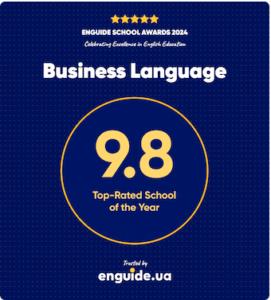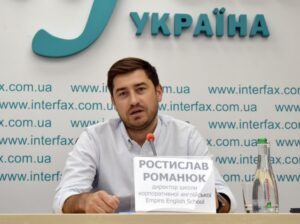
When we communicate in English, we often use buffer phrases, many conventions, polite requests, and “soft” constructions, which are perceived as courtesy and friendliness in the English-speaking world. But Ukrainian communication culture is different: here, sincerity, directness, tone, and quality of interaction are more valued than simply formal “politeness” for the sake of politeness. For example, it is said that Ukrainians use the formal “Ви” in formal relationships and refrain from an overly friendly tone, as it may seem insincere. Cultural Atlas+2speakua.com+2
Thus, a phrase that in an English-speaking context means “I am friendly, polite, and ready to cooperate” may sound like “you are not serious,” “I am not in the mood for deep communication,” or even “I am looking down on you” in a Ukrainian context. It is these “cross-cultural pitfalls” that we want to explore today.
Before moving on to specific phrases, here are a few explanations of why this happens:
So, now let’s get down to practice: let’s look at specific English phrases, their literal/typical translation/use, and how they can be understood in Ukrainian (often not as the English speaker expects).
English: “I hope you’re well.”
What the English speaker means: “I hope everything is okay with you.”
How it sounds in Ukrainian: “I hope you are feeling well.”
Why it can be tricky: In the context of a worksheet, it can be interpreted as: “I’m not sure if you’re here,” “I’m not needed here.” In Ukrainian, it is more common to say, “I hope you are well,” which sounds normal, but if it is used as an introductory phrase before a serious request, it may seem distant due to its formality.
How to adapt: “Good afternoon, [Name]” — short, clear, and to the point.
In English: “Would you mind…” (“Would you mind sending the report by Friday?”)
What the English speaker means: to politely ask someone to perform an action.
How it sounds in Ukrainian literally: “Would you mind if…?”
Why it may be perceived as harsh: This construction is rarely used in Ukrainian, and when it is used, it often has the subtext “I don’t really want to, but I have to.” In other words, “Would you mind…?” can be perceived as “I think you might not want to, but we have to.”
How to adapt: Better: “Could you send the report by Friday?” or “Please send the report by Friday.”
In English: “Just to check…” (“Just to check if you received my previous email.”)
What it means: a polite reminder.
How it sounds in Ukrainian: “Just checking if you received…”
Why it’s a trap: “Just checking” can sound like “I doubt you received it” or “I don’t believe you did it.” When communicating with adult Ukrainians, it is better to avoid the word “just” as a minimizer.
Adaptation: “I wanted to know if you received my previous message.” — clearly, without diminutives.
In English: “If possible…” (“If possible, could you join the meeting at 3 pm?”)
What it means: necessity + willingness to accept “no.”
How it sounds in Ukrainian: “If possible, could you join…”
Why it can cause misunderstanding: The Ukrainian “if possible” is often perceived as “most likely impossible, don’t bother.” Instead of “if convenient,” it is better to say “please.”
Adaptation: “We invite you to join the meeting at 3 pm.” If ‘no’ is a real possibility, then: “If it’s convenient for you, please join us at 3 pm.”
In English: “We’ll keep you posted.”
What it means: “We will keep you informed.”
How it sounds in Ukrainian: “We will inform you.”
Why it’s a trap: “We will inform you” often sounds like “you are passive, we decide.” In Ukrainian business interactions, it is better to emphasize commonality: “We will provide you with updates” or “We will inform you about the next steps.”
Adaptation: “We will inform you about the next steps immediately after approval.”
In English: “Like I said before…”
What it means: a reminder of what has already been said.
How it sounds in Ukrainian: “As I said before…”
Why it can sound harsh: In Ukrainian, this phrase can be perceived as “you weren’t listening” or “I’m repeating myself because you forgot.” And that can cause tension.
Adaptation: “As discussed earlier…”
Translating English phrases into Ukrainian literally is like transferring the styles of one culture to another without adaptation. But communication cultures are different: what works in one environment may create distance, misunderstanding, or even offense in another.
● The Ukrainian style of communication is more direct, less subtly “circumventing,” but that does not mean “rude.”
● A large number of conventions or buffer expressions can create the impression that we are speaking insincerely or even formally and coldly.
● In a business or educational context with an adult audience, the following are often valued: clarity, transparency, strength of argument, not “softness.”
● Do not overuse “substitute” phrases. For example: “Just checking in” is fine in an informal letter, but in a formal Ukrainian context it can create an impression of unprofessionalism.
● Check whether the request is perceived as a request and not as a plea for an exception. If you use “If possible,” think about whether it is really possible or whether it sounds like “unfortunately, probably not.”
● Use clear verbs. For example: “Send,” “Discuss,” “Program.” Avoid overly soft constructions if you want action.
● Teach your audience to analyze cultural signals. For example, when an English speaker says “that’s interesting,” it often means “I doubt it.” Similarly, if a Ukrainian interlocutor says “that’s interesting,” it is not necessarily a compliment.
● Encourage directness with respect. In Ukrainian culture, being direct does not mean being rude — it means being clear. Learn to express yourself respectfully but clearly.
Intercultural communication is not just about knowing words or grammar, it is about understanding context, culture, and expectations. When we speak English “politely” and transfer the same model to Ukrainian, we risk not only being “formally polite,” but also creating a sense of distance, uncertainty, or even inappropriate seriousness. But this is not a tragedy — it is an opportunity to learn to adapt. You can learn this in the course “Ukrainian for Foreigners.”

Sound familiar? You have a solid vocabulary, you understand verb tenses, but when you start speaking, something goes wrong. People ask you to repeat yourself, you mix up words, and you feel like you don’t sound “English” despite all your efforts. This is one of the most common problems for adults learning English, and you are not alone.
The good news is that it’s not a lack of talent for languages. It’s a matter of physical habit. Your speech apparatus has been trained for years to pronounce the sounds of your native language, and now it needs a little “reprogramming.”
And you don’t need hours of boring exercises to do this. Just 15 minutes a day is your investment in the confidence, clarity, and naturalness of your English. This article is your personal fitness plan for your facial muscles, which will help you not only speak, but sound so that you are heard and understood the first time around.
If you’ve ever tried to say “three” and it came out as ‘sree’ or “tree,” know that it’s not your fault. It’s a scientific phenomenon called fossilization. Your brain and muscles are so accustomed to the sounds of Ukrainian that they automatically try to “simplify” unfamiliar English sounds, replacing them with familiar analogues.
To break this code, you need to understand three main differences between the sounds of our languages:
Our 4-week plan is built on these three pillars so that you can master the new “mechanics” of speech step by step.
Ready for transformation? Each day is a micro-training session consisting of three parts: 5 minutes of warm-up, 7 minutes of main task, and 3 minutes of practice and reinforcement.
Your mission: Prepare your articulatory apparatus for new, unfamiliar movements.
What we do: We start with a warm-up for the lips, tongue, and jaw. During the main part, we focus on sounds that are similar but not identical. For example, the English [p], [t], [k] are pronounced with a breath (aspiration), as if you were blowing out a candle. Practice by saying: pen, ten, key. To reinforce, record yourself on a voice recorder reading a simple text. This is your “point A.”
Your mission: Master sounds that do not exist in Ukrainian and learn to distinguish between similar vowels.
What we do: This week is dedicated to the “superstars” of English phonetics.
● Sounds /θ/ and /ð/: place the tip of your tongue between your teeth and gently blow air. For /θ/ (think, bath) — just air, for /ð/ (this, mother) — add your voice.
● Sound /w/: round your lips as if for a kiss and quickly open them. This is not the Ukrainian [в]! Practice: we, what, wine.
● Minimal pairs: Your secret weapon. Repeat pairs of words that differ by one sound to train both your tongue and your ear: ship/sheep, sit/seat, bad/bed, cat/cut.
Focus of the week: Stop speaking monotonously and start sounding like a native speaker.
What we do: Focus on the music of speech.
● Stress rhythm: Take a sentence and emphasize only the important (meaningful) words with your voice: “I went to the store to buy some milk.” Pronounce function words (I, to the, to, some) quickly and indistinctly.
● Intonation: Practice an upward tone for yes/no questions (“Are you ready?➚”) and a downward tone for informational questions and statements (“It’s a beautiful day➘”).
● Shadowing technique: This is your main tool. Turn on a 30-second audio recording (podcast, news) and repeat after the speaker in sync, trying to imitate their rhythm, pauses, and intonation. Don’t try to pronounce everything perfectly, just “dance” to the rhythm of their voice.
Your mission: Automate your new skills so that they become second nature.
What to do: The main exercise this week is “Shadowing”. Gradually increase the length of the excerpts to 1-2 minutes, using dialogues from movies and TV shows. Add reading aloud, but now consciously apply the rules of rhythm and intonation. At the end of the week, make a final recording of the same text as in the first week. Compare. You will be amazed at the difference!
Four weeks is a powerful start, but the path to mastery is a marathon. Here’s what will help you keep going.
Voice recording is your most honest feedback. Listen to yourself and analyze:
● Did I pronounce the /θ/ sound correctly in the word “think”?
● Is the rhythm of the sentence correct? Did I emphasize the article “the”?
● Was there a rising intonation in the question?
Modern AI tools, such as Pronounce AI, can analyze your pronunciation in real time and give you instant advice.
Use your smartphone as a trainer:
● Pronunciation apps: ELSA Speak is a pocket speech therapist that evaluates your pronunciation and gives you specific exercises.
● General language apps: Babbel and Memrise have listening and speech recognition features that will help you reinforce the correct pronunciation of words.
● Online dictionaries: check the pronunciation of new words in dictionaries such as Longman or WooordHunt, which offer audio versions of both British and American pronunciation.
Remember: your goal is not perfect pronunciation, but clear and confident speech. A slight accent is part of your identity. But when you control the sounds, rhythm, and intonation, you control the impression you make.
If you feel like you need support, Business Language is always there to help.
Consistency is more important than intensity. Those 15 minutes a day are not a boring chore, but an exciting game in which you discover new possibilities for your voice. Start today, and in a month you will hear the difference. And most importantly, others will hear it too.

Your step-by-step plan
Individual trajectory. Flexibility. Practical training.
Adaptive learning makes English personal. It’s not about the rules in a textbook. It’s about your goals, your schedule and your results. This is how we work at Business Language.
This is an approach where the program adapts to you. It starts with diagnostics. This is followed by a plan that takes into account the level, goals, and most common mistakes. Instead of a one-size-fits-all course, you get your own development trajectory. Each lesson has a practical goal.
You are busy. You have specific tasks. There is no time for unnecessary theory. Customized training focuses energy on real results. You need to prepare for an interview – we do a mock interview. If you have a presentation to make, we train your pitch in English. This saves time and increases motivation.
The plan is built around your goals. Each stage is measured. There are no unnecessary repetitions. You develop exactly what brings results. This means faster progress and tangible changes in 1-3 months.
A combination of short online modules, individual lessons and conversational practice. Live sessions to practice real-life dialogues. You choose the rhythm. The program adapts to your working hours.
Work through cases, role-playing games, simulations. It’s one thing to read the rules. It’s another to say difficult phrases in a negotiation scenario. Feedback from the teacher identifies weaknesses and gives specific exercises to correct them.
Platforms and artificial intelligence are useful for repetition, pronunciation analysis, and progress tracking. They make routines more efficient. But an algorithm without a teacher is just an app. The best results come from combining technology with a live teacher who knows the context of your work.
3-minute “pitch rehearsals”. Say a short description of the project out loud every day.
● Role-playing scenarios. Practice standard work dialogues once a week.
● Micro vocabulary tasks. 5 new words in context every day. Return to them in 3 days.
Express Pronunciation. 10 minutes daily with recording and analysis of errors.
Work cases are collected. Based on them, modules for negotiations, presentations and correspondence are created. The instructor personalizes the task for each participant. The team receives short homework exercises to consolidate. The result: faster implementation of communication standards and fewer errors in business correspondence.
● The illusion of “automatic progress”. Just installing the application is not enough. You need pedagogical support.
● Wrong metrics. Measure practical results, not just the number of exercises completed.
Overload. Regular short exercises are better than rare long sessions.
You start speaking faster. You are less nervous at interviews. You prepare presentations more easily. English ceases to be an abstract skill. It becomes a tool that helps you achieve your goals.
Adapted learning doesn’t promise miracles overnight. It gives you the tools. And it requires consistency. If you are ready to invest time, it will return it with a profit ????.
Prepared by ENGLISH.KH.UA

Specialized experts believe that during the war, English becomes critically important for Ukraine, especially in the military and corporate spheres.
“We are convinced that English is a key tool for improving the effectiveness of Ukraine’s interaction with international partners, particularly in the military sphere, where the correct understanding and use of Western weapons requires a thorough knowledge of English,” said Rostyslav Romaniuk, director of Empire English School, during a press conference at Interfax-Ukraine.
He also emphasized the need for the Ukrainian military to have a high level of English.
“We see that every word matters on the battlefield, and any language mistake can lead to disastrous consequences,” he said.
Rostyslav Romaniuk emphasized that English is becoming necessary not only for the use of Western weapons, but also for communication with foreign instructors and military partners. Specialized organizations emphasize that this need should be taken into account when developing educational programs for the military.
Empire English School, which has been providing English language training services in Ukraine for more than seven years, has faced new challenges due to the war. The demand for corporate English training has grown significantly, as most companies are forced to adapt to new conditions and do business internationally.
Specialized organizations believe that English has become an integral part of the development strategy of Ukrainian companies, especially after the transition to remote work and the growth of international relations.
“Ukraine’s educational system is facing the problem of the outflow of qualified personnel. We are seeing a significant shortage of English language teachers as many specialists were forced to leave the country due to the war. This creates challenges for the education system and needs to be addressed immediately,” emphasized the director of Empire English School.
The expert also drew attention to the role of English in the psychological rehabilitation of veterans.
“Learning English can be a powerful tool not only for professional development, but also for rehabilitation of veterans, helping them to adapt to civilian life after the war,” said Romaniuk.
This position is supported by specialized organizations, which believe that language learning will contribute not only to the professional development of veterans, but also to their integration into society.
Rostyslav Romaniuk emphasized that knowledge of English is critical for the future of Ukraine, especially in the context of the country’s post-war recovery.
“English opens the door for Ukraine to international markets, attracting investment and global cooperation, which is crucial for economic recovery,” said Mr. Romaniuk.